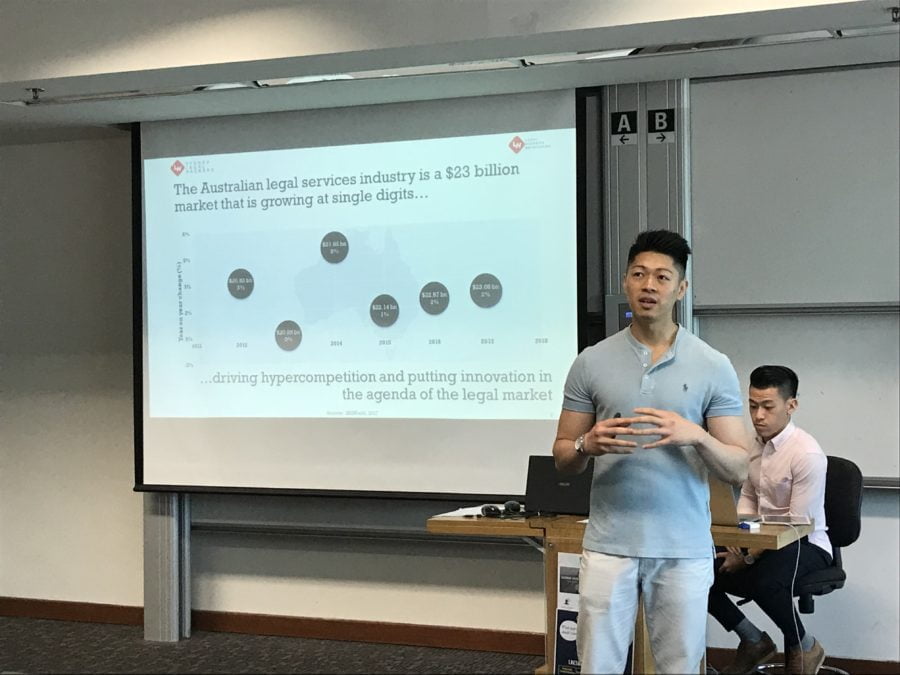Interview by Huiling Xie | Edited by Amelia Chew & Emily Tan
In November 2018, LawTech.Asia co-organised the inaugural APAC Legal Hackers Summit alongside Singapore Legal Hackers and the Singapore Academy of Law’s Future Law Innovation Programme (FLIP), bringing together Legal Hackers chapter organisers in the region to share insights on legal innovation across APAC. Legal Hackers is a global movement of lawyers, policymakers, designers, technologists, and academics who explore issues and opportunities where technology can improve and inform the practice of law, and where law, legal practice, and policy can adapt to rapidly changing technology. In this series, we profile Legal Hackers chapter organisers who are driving legal innovation in their cities.
Here, Eric Chin, a strategy consultant for the legal industry and chapter organiser at Legal Hackers Melbourne, shares his insights on where the legal industry is headed.
You started your career in the consulting industry, providing services to a number of professional services firms across industries such as law, engineering, and accounting. What about the legal industry drew you to carve out an independent practice specialising in consulting for law firms?
The legal market is in a very unique position in its history. I see a lot of opportunity in helping law firms, NewLaw firms and LegalTech firms navigate the changing market.
Taking a long-term view, the industry has seen a few distinct phases in how competition has evolved. The concept of practice groups emerged in the 1980s. This then progressed to scale and geographic expansion in the golden age of globalisation of the 1990s. The 2000s saw the outsourcing trend engulf the market as legal process outsourcing companies and legal managed service firms (NewLaw firms) were conceived. In this decade, the 2010s, the technological trend gave birth to LegalTech firms. Not to forget also the entry of the Big Six accounting firms in the 1990s that culminated in the Big Five becoming one of the largest in the world in the early 2000s. Since the 2010s, we have seen the Big Four establishing their legal offering in various forms.

